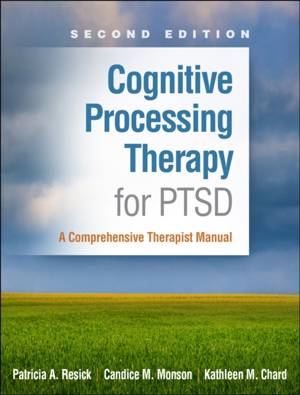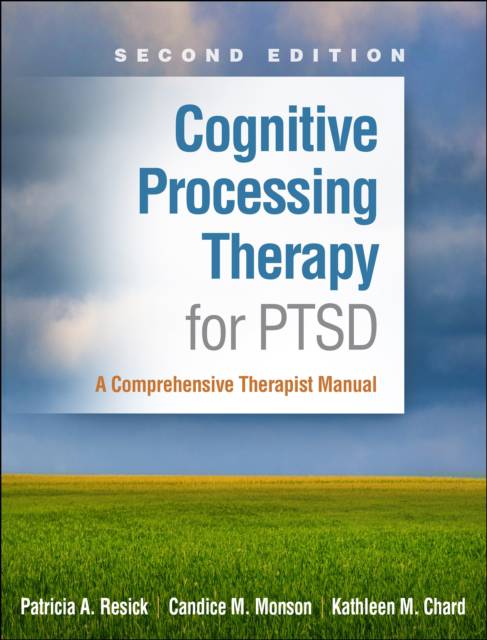
Bedankt voor het vertrouwen het afgelopen jaar! Om jou te bedanken bieden we GRATIS verzending (in België) aan op alles gedurende de hele maand januari.
- Afhalen na 1 uur in een winkel met voorraad
- In januari gratis thuislevering in België
- Ruim aanbod met 7 miljoen producten
Bedankt voor het vertrouwen het afgelopen jaar! Om jou te bedanken bieden we GRATIS verzending (in België) aan op alles gedurende de hele maand januari.
- Afhalen na 1 uur in een winkel met voorraad
- In januari gratis thuislevering in België
- Ruim aanbod met 7 miljoen producten
Zoeken
Cognitive Processing Therapy for PTSD
A Comprehensive Therapist Manual
Patricia A Resick, Candice M Monson, Kathleen M Chard
Hardcover | Engels
€ 87,95
+ 175 punten
Uitvoering
Omschrijving
The authoritative presentation of cognitive processing therapy (CPT) for posttraumatic stress disorder (PTSD) is now in a revised and updated second edition, with an easier-to-use format and a new chapter on conceptualizing treatment. From CPT's developers, the manual includes session-by-session implementation guidelines and extensive sample dialogues. Shaded index tabs in the margins help clinicians quickly navigate to each session. The authors explain the theoretical and empirical underpinnings of CPT and discuss ways to work effectively with specific populations, such as combat veterans, sexual assault survivors, and culturally diverse and LGBTQIA+ clients. Forty-eight reproducible handouts can be photocopied from the large-size book or downloaded from the companion webpage. New to This Edition
- Each session now has its own chapter, printed with shaded tabs for easy reference.
- Reflects a wealth of new treatment research, conceptual refinements, and feedback from trainings of thousands of clinicians.
- Chapter on cognitive case conceptualization.
- Discusses additional treatment variations (telehealth, intensive CPT) and client populations (first responders).
Specificaties
Betrokkenen
- Auteur(s):
- Uitgeverij:
Inhoud
- Aantal bladzijden:
- 328
- Taal:
- Engels
Eigenschappen
- Productcode (EAN):
- 9781462554300
- Verschijningsdatum:
- 7/08/2024
- Uitvoering:
- Hardcover
- Formaat:
- Genaaid
- Afmetingen:
- 203 mm x 277 mm
- Gewicht:
- 1097 g

Alleen bij Standaard Boekhandel
+ 175 punten op je klantenkaart van Standaard Boekhandel
Beoordelingen
We publiceren alleen reviews die voldoen aan de voorwaarden voor reviews. Bekijk onze voorwaarden voor reviews.









